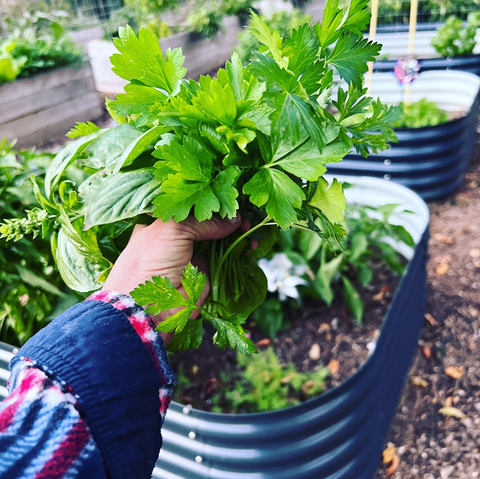A Guide from Olle Garden Bed: Composting Diseased Plants
When plants become diseased, composting can be a viable way to handle the issue, but it requires some special precautions to ensure that the disease is not spread. In this article, we will explore how to compost diseased plants and the key steps to be aware of. The following content also has some reference value for raised garden beds.
Benefits of Composting
First, let's understand why composting diseased plants can be beneficial. Composting plant waste reduces landfill waste and lessens the environmental burden. Furthermore, composting generates organic fertilizers that can improve soil quality and aid in plant growth. However, when composting plant waste, some extra considerations should be taken to prevent the disease from spreading.
Precautions
- Separate Diseased Plants: The first task is to separate diseased plants from healthy ones. This prevents the spread of the disease. Place diseased plant waste in a separate compost pile, while the waste from healthy plants can go into another compost pile.
- Properly Treat Diseased Plants: Before composting, some additional measures can be taken to handle diseased plants and reduce the risk of disease transmission. For instance, you can remove the diseased leaves to decrease the number of pathogens. If possible, introduce the diseased plants into a compost pile that has already reached high temperatures, as high temperatures help to kill pathogens.
- Proper Layering: When establishing a compost pile, maintain proper layering to ensure adequate ventilation and decomposition. Mix the diseased plant waste with other organic materials to ensure even decomposition.
- Monitor Temperature and Moisture: Regularly monitor the temperature and moisture levels of the compost pile. High temperatures help kill pathogens, so it's essential to ensure the compost pile reaches an adequate temperature. Simultaneously, the moisture level in the compost pile should be maintained at the right level to promote decomposition.
- Use Mature Compost: The final compost should have had enough time to decompose and no longer contain pathogens. Using mature compost for fertilization reduces the risk of disease transmission.
When composting diseased plants, the key is to take appropriate precautions to prevent disease transmission. Separating diseased plants, properly treating them, maintaining suitable composting conditions, and using mature compost are essential steps to ensure safe composting. By following these measures, you can transform diseased plants into organic fertilizers while reducing the risk of disease spread, promoting environmental sustainability, and enhancing plant health.


